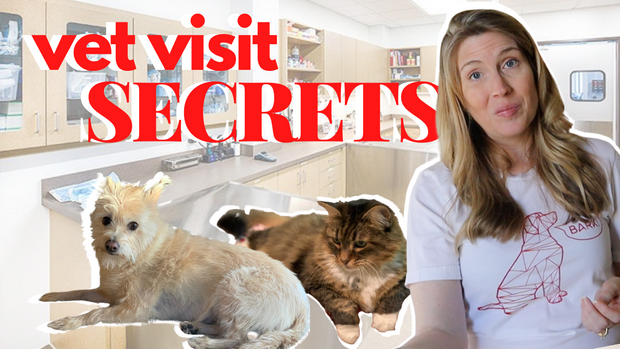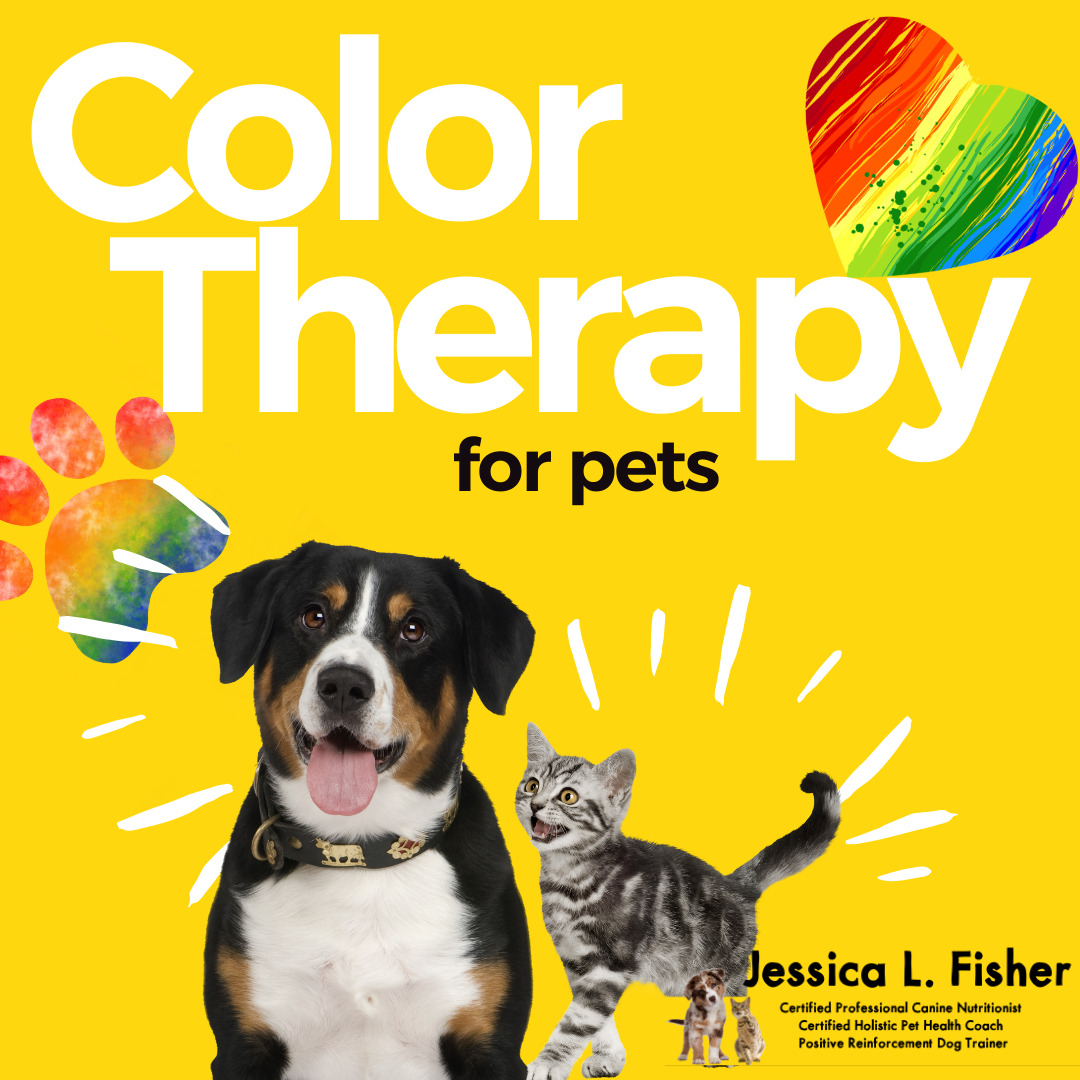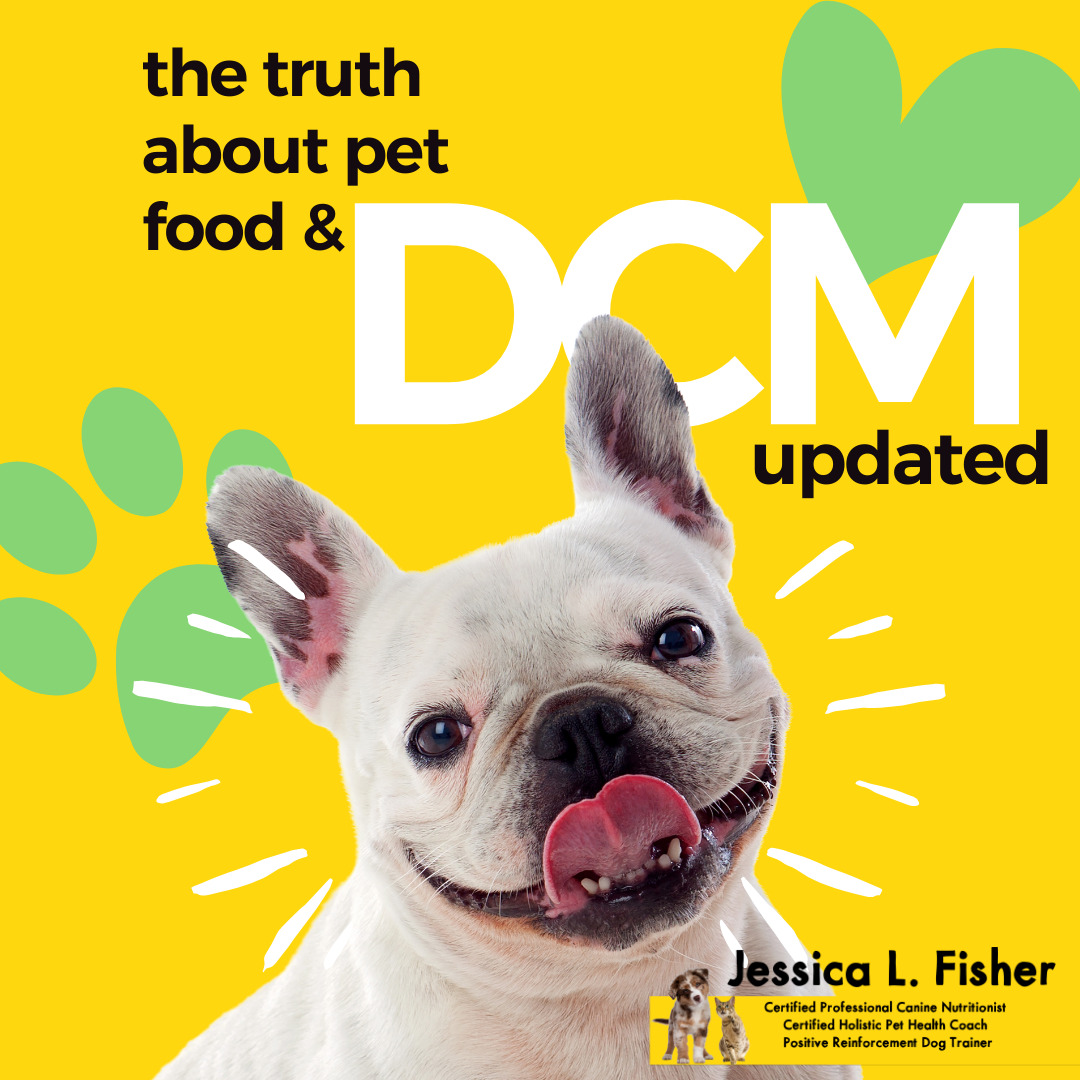I had to take Kim to the vet this week and when I first called I had all the anxiety! For almost a year and a half the vet wasn’t allowing anyone inside, only the animals and if you’ve ever had a dog with separation anxiety you know that little things like this can trigger it, even though we’ve worked long and hard to help her cope.
I was especially concerned because we had just come back from a trip, so she was already having some setbacks from being left with the pet sitter. Bur her ear was really bothering her. I could see that it was red, she was scratching and shaking her head A LOT and since I wasn’t here for a few days, my mind raced thinking about what could be going on. Did she get a foxtail in her ear? Does she have an ear infection? It was getting worse and she was whining as she scratched and asked us to rub her ear constantly.
I got her to the vet as quickly as I could, but overnight while waiting, I thought about preparing for the appointment and writing down everything so there could be no mistakes (ie: unwanted vaccinations). I remembered that Dr. Judy Morgan put out a vet visit PDF, so I printed it out and filled out the form.
Fortunately, there was no foxtail or any other foreign object and while her ear was quite inflamed, there were no signs of infection.
I was also relieved that for the first time in a long time I was able to go in with her. I didn’t need the form! But I’m glad I filled it out the night before because it really put my head in the right space for the appointment.
That got me thinking about this week’s video and how we can all make vet visits go smoother and get the most out of them. Not only will you and your pet be better off, but your vet will be able to do their job better.
I will say that the vet tech was rude and pushy and if I hadn’t stood my ground, my dog may have been harmed. It is in our pet’s best interest to be diligent and play the role we are supposed to play in their healthcare. Our veterinarians are only PART of our pets healthcare plan, we have a big role to play here too. Let me explain…
Prepare Before Your Visit
There are certain things you need to know before walking into your vet’s office with your pet.
– Current diet
– Past medical issues/allergies
– Current medications and supplements
– Any temperament issues
If you are going in for a good visit, know ahead of time exactly what you want out of the visit.
– Does your pet need vaccinations or titer testing?
– Do you have any concerns to ask the doctor about such as appetite, energy levels, etc.
– Is your pet’s urination normal? Is their poop normal?
– How is their water consumption?
– How is their appetite?
– Any changes in behavior?
If you are going in for concern or medical issue, you will also want to know the following:
– What is the concern (be as specific as possible)?
– When was the last time your pet ate?
– Are they vomiting? How long has this been happening? How many times?
– Any coughing, sneezing, or runny eyes?
– Is your pet scratching or rubbing anywhere (ears, eyes, feet)?
– Does your pet show any signs of pain or discomfort?
– Any changes in food?
– Any changes in routine?
– Any changes in the environment?
The more specific you can be, the better chance you are giving your veterinarian to pinpoint the issue.
Know Your Limits
Remember when I said earlier that I had an issue with the vet tech at Kim’s appointment? She wanted to do ear cytology before the doctor had even been in to see Kim. She wanted to take q-tips and go in Kim’s ears before the doctor (or even she) looked inside the ear. Nope, not this time.
Since I wasn’t home for a few days and Kim was being cared for by a pet sitter, I didn’t know if there was a possibility of a foreign object in her ear. The way she was whining had me very concerned that this could be a possibility.
When I told the vet tech I’d rather wait, she got an attitude with me. She picked the wrong person, let me tell you. But it did make me feel bad for others who go in blindly doing whatever the vet staff tells them. And I get it, I used to be this person! I can reason that they want to get the cytology in right away to save everyone some time, but I’m paying for my doctor’s time and I am my pet’s advocate. That is my number one role in my pet’s health care.
Know Your Veterinarian’s Limits
As it turns out, Kim’s ear was inflamed for a reason unknown to my vet. She’s an allopathic veterinarian, or a conventional veterinarian, who certainly knows more than I do about my dog and my cat’s physiology. But she doesn’t know much about holistic or natural medicine. So while I definitely need her for testing and diagnostics and the occasional medication (I do think there is sometimes room for pharmaceuticals, used with caution), she also knows that I’m not the person who wants to through the book at everything in the hope that something sticks.
She looked at me and said, “You’re just going to have to figure it out.”
Fortunately, I already had an idea of what to do and what to do if that doesn’t work!
We came home and I thawed a carton of Answers Raw Goats milk Kim has been eating a breakfast of RGM every morning since with a side of RGM at dinner with her Bones & Co. meal.
Three days later and she isn’t scratching or shaking her head. Are we out of the woods? No. I also ordered Vital Animal’s Canine immune Complete (it’s on the way). I had intended to start adding this into Kim’s meals anyway once we moved (the threat of heartworm is much greater in central Texas), but why not start now?
Kim has been raw-fed for over 5 years, the entire time we’ve had her, but these things can still happen. I’m thrilled that I could do something so simple and not use medications to help her heal, but also that it is helping me to become a better dog mom. I’m learning more and more about how to keep my pets healthy, and it’s having a positive effect on my health as well.
Your Vet Works For You, Respectfully
I love our vets. They have some of the hardest jobs around and they are taken advantage of far too often. But we have to understand that they can only do so much. WE have to take a more active role in the health of our pets.
I think so many veterinarians have come to accept that pet parents rely on them for literally every aspect of the well-being of their pets. This isn’t natural! Your vet doesn’t live with your pet, so the pressure we put on them is too much!
But also, some vets have become bullies with their “my way or the highway” attitude towards your pet’s care. I think. I’ve never actually met a vet like this, but I’ve heard stories. I’d say the vet tech I ran into the other day was well on her way to becoming one of these people, but maybe she was just having a bad day.
The more active of a role you take in your pet’s health, the better off your pet will be, and the better your relationship with your vet can be.
Also, your vet may be one of many who treat your pet. For instance, I have a holistic vet lined up to take over my pet’s care once we move. But she is a traveling vet, so if I need to take my pets in the office for anything, say a dental procedure, I will also have a conventional vet for those types of services. In this case, I will be much more of a crucial role in my pet’s healthcare as I will have to take the lead on what each vet does and says. Something to think about!
Help Your Dog Relax
Helping your dog to relax before and during a vet visit is often the last thought, but if we have a scheduled appointment, we have time to get it right!
Dr. Buzby has an excellent blog on the topic and some of her suggestions should be taken to heart!
– Walk your dog before the appointment to help them get energy out and be calmer
– Play with your dog before the visit and give them time to go potty
– Calm YOURSELF! That tension on the leash makes your dog very nervous
– Bring your dog’s bed or blanket with you
Final Thought
If nothing else comes through from this, there is one thing I want you to take away …. LEARN AS MUCH AS YOU CAN BE YOUR PET’s #1 ADVOCATE!
If I hadn’t been learning about dysbiosis (an imbalance in the gut) and how we need to stop looking to constantly suppress symptoms, I probably would have looked at my vet and asked if there was anything at all she could do to ease the discomfort for my dog. And here’s the thing, I
DID and DO want to ease her discomfort, but I also know the value of symptoms.
To be honest, I’m shocked at how quickly she is feeling better. I truly thought it would take weeks, but I’m hopeful that she was so healthy to begin with that her healing process was shortened.
Goat’s milk will now be a staple of her diet moving forward. It is a pretty great food for her anyway, and I should have been feeding it all along.
I hope this post can help at least one person to take a more active role in their pet’s health. I truly think as a society we’ve dropped the ball on this one and we need to make a change to help our pets live happier and healthier lives!




